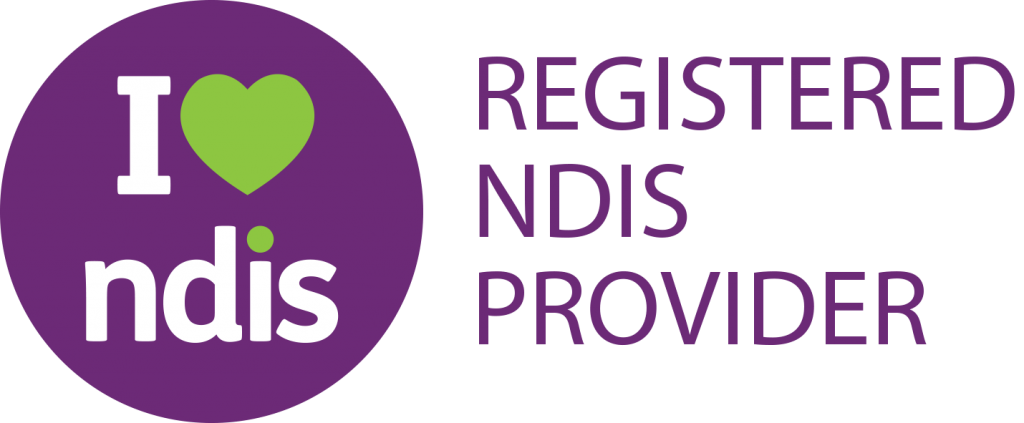Difference Between NDIS Support Coordination and Plan Management
NDIS participants often struggle to understand the difference between support coordination and plan management. These two services serve distinct functions within the National Disability Insurance Scheme, yet many participants mistakenly believe they provide identical services under different names.
Support coordination focuses on connecting participants with services and building their capacity to manage supports independently. Plan management handles the financial aspects of NDIS plans, including invoice processing and budget tracking. Understanding these differences helps participants make informed decisions about which services suit their specific needs.
What is NDIS Support Coordination?
Understanding NDIS Support Coordination
NDIS support coordination assists participants in connecting with appropriate services and building their capacity to coordinate supports effectively. Support coordinators work closely with participants to understand their NDIS plan and implement supports that align with their goals.
The NDIA funds support coordination when they determine it meets the reasonable and necessary criteria. This service falls under capacity building supports within NDIS plans and requires specific approval based on individual circumstances.
What Does a Support Coordinator Do?
Support coordinators play a pivotal role in helping participants navigate the complex NDIS system. They connect participants with suitable service providers, negotiate service agreements, and monitor the effectiveness of supports delivered.
Key responsibilities include understanding participants’ NDIS plans and goals, identifying appropriate service providers, coordinating service delivery, and advocating for participants’ needs. Support coordinators also prepare participants for plan reviews and build their confidence in managing supports independently.
The Three Levels Explained
Three Levels of NDIS Support Coordination
The NDIS offers three distinct levels of support coordination to match varying participant needs and circumstances.
Level 1: Support Connection
Support connection provides limited assistance to help participants establish initial connections with service providers. This level typically involves a few hours of support to set up essential services and introduce participants to their provider network.
Support connection suits participants with straightforward needs who require minimal assistance in connecting with mainstream and community services.
Level 2: Coordination of Supports (Most Common)
Coordination of supports represents the most common level of support coordination funding. This service provides ongoing assistance to help participants understand and implement their NDIS plans effectively.
Support coordinators spend several hours each week working with participants to coordinate service delivery, resolve issues, and build participant capacity. This level focuses on developing participants’ skills in managing their supports and increasing their independence over time.
Level 3: Specialist Support Coordination
Specialist support coordination addresses complex situations that require specialized expertise and intensive support. This level assists participants facing significant challenges in their support environment and ensures consistent delivery of services.
Specialist support coordinators possess advanced qualifications and experience in managing complex disability support needs. They work with participants who experience multiple barriers to accessing supports or require crisis intervention and specialized advocacy.
Key Responsibilities
What Support Coordinators Actually Do
Support coordinators perform specific activities designed to build participant capacity and improve support coordination outcomes. They conduct comprehensive assessments of participant needs and develop strategies to address identified barriers.
Support coordinators establish and maintain relationships with service providers, monitor plan budgets to ensure effective use of funding, and provide regular reports to participants and the NDIA on progress toward goals.
Understanding your NDIS plan and goals
Support coordinators help participants decode complex NDIS plans and understand how different supports connect to achieve personal goals. They explain funding categories, support types, and budget allocations in clear, understandable terms.
This process involves working with participants to identify priorities, map available supports to specific outcomes, and develop implementation strategies that maximize plan effectiveness.
Eligibility and Funding
How to Get Support Coordination
Participants request support coordination during their NDIS planning meetings with the NDIA. The NDIA evaluates requests based on reasonable and necessary criteria, considering factors such as participant circumstances, existing informal supports, and capacity building needs.
Support coordination funding comes from the capacity building budget within NDIS plans. The NDIA determines the appropriate level of support coordination based on individual assessment outcomes and identified support needs.
What is NDIS Plan Management?
Understanding NDIS Plan Management

NDIS plan management provides financial administration services for NDIS participants who choose plan-managed funding arrangements. Plan managers act as financial intermediaries, handling invoice processing, budget monitoring, and NDIS portal claims management.
Plan management allows participants to access both registered and unregistered service providers while receiving professional financial oversight of their NDIS funding.
Definition and Core Purpose
What Does a Plan Manager Do?
Plan managers specialize in the financial aspects of NDIS plans, serving as participants’ dedicated NDIS accountants. They process invoices from service providers, submit claims through the NDIS portal, and maintain detailed financial records for audit purposes.
Plan managers ensure compliance with NDIS pricing arrangements and price limits, protecting participants from overcharging and ensuring fair pricing for services delivered.
Core Services
Plan Management Services Explained
Plan management encompasses comprehensive financial administration services designed to streamline NDIS funding management for participants.
Invoice Processing and Payment
Plan managers receive invoices from service providers and process payments on behalf of participants. This service eliminates payment delays and ensures providers receive prompt payment for supports delivered.
The invoice processing system involves verifying service delivery, checking pricing compliance, and managing payment schedules to maintain positive provider relationships.
Budget Tracking and Reporting
Plan managers provide detailed budget tracking services, monitoring spending across all NDIS funding categories. They generate monthly statements showing current balances, recent transactions, and projected spending patterns.
This reporting helps participants understand their financial position and make informed decisions about future support purchases to avoid overspending or underspending NDIS funds.
NDIS Portal Management
Plan managers handle all interactions with the NDIS portal, including claims submission, payment processing, and compliance reporting. They manage the complex administrative requirements associated with NDIS funding claims.
Portal management includes maintaining accurate participant records, updating service bookings, and ensuring all transactions comply with NDIS requirements and regulations.
Financial Reporting
Plan managers maintain comprehensive financial records for participants, including detailed transaction histories, provider payment records, and compliance documentation for audit purposes.
Financial reporting includes preparation of documentation for plan reviews, budget analysis reports, and financial summaries that support ongoing NDIS planning processes.
Benefits of Plan Management
Why Choose Plan Management?
Plan management offers participants increased flexibility in provider choice while maintaining professional financial oversight. Participants can access services from both registered and unregistered providers, expanding their options for specialized supports.
Plan management eliminates administrative burden for participants, allowing them to focus on achieving their goals rather than managing complex financial processes. Professional plan managers ensure compliance with NDIS requirements and protect participants from financial risks.
Eligibility and Cost
How to Access Plan Management
All NDIS participants can request plan management regardless of their circumstances or support needs. No eligibility criteria restrict access to plan management services, making this option available to anyone who prefers professional financial administration.
Plan management receives separate funding under the choice and control budget category. The NDIS fully funds plan management services at no cost to participants, covering both setup fees and ongoing monthly management charges.
Support Coordination vs Plan Management: Direct Comparison
Support coordination and plan management serve complementary but distinct functions within NDIS support arrangements. Support coordination focuses on service connection and capacity building, while plan management handles financial administration and payment processing.
Support coordination requires NDIA approval based on reasonable and necessary criteria, whereas plan management is available to all participants upon request. Support coordination funding comes from capacity building budgets, while plan management receives separate choice and control funding.
Common Scenarios
Which Service Do You Need?
Choose support coordination if you need assistance finding appropriate service providers, understanding your NDIS plan, or building skills to manage supports independently. Support coordination suits participants with complex needs, multiple service providers, or limited experience navigating disability services.
Choose plan management if you want professional financial administration, access to unregistered providers, or relief from invoice processing and budget management tasks. Plan management benefits participants who prefer to focus on service delivery rather than administrative responsibilities.
Consider both services if you have complex support needs requiring professional coordination combined with comprehensive financial management. Many participants benefit from combining these services to achieve optimal NDIS outcomes.
Common Misconceptions
Clearing Up Common Confusion
Many participants incorrectly assume support coordinators and plan managers perform identical functions. This confusion arises because both services support NDIS plan implementation, but they address completely different aspects of support management.
Support coordinators cannot process invoices, manage finances, or handle payment-related issues. Plan managers cannot choose service providers, arrange service agreements, or resolve service delivery problems.
What They DON’T Do
Support Coordinators Cannot
Support coordinators do not handle financial aspects of NDIS plans. They cannot pay invoices, process claims through the NDIS portal, or provide budget tracking and financial reporting services.
Support coordinators cannot make decisions for participants or override participant choices regarding service providers or support arrangements. Their role focuses on building participant capacity and facilitating connections rather than direct service provision.
Plan Managers Cannot
Plan managers cannot choose service providers or arrange service agreements for participants. They do not provide therapeutic services, advocacy support, or capacity building interventions.
Plan managers cannot resolve service delivery issues, negotiate service quality improvements, or address conflicts between participants and service providers. Their expertise lies in financial administration rather than service coordination.
Realistic Expectations
Setting the Right Expectations
Both support coordination and plan management require active participant engagement to achieve optimal outcomes. These services enhance participant capacity and streamline administrative processes but do not replace participant decision-making or responsibility.
Quality varies significantly between different providers of support coordination and plan management services. Participants should research provider qualifications, experience, and service approaches before making selections.
How Nurse Aid Australia Can Help
Expert NDIS Support from Nurse Aid Australia
Nurse Aid Australia provides specialized NDIS support coordination and plan management services designed to maximize participant outcomes and independence.
Our Unique Approach
Why Choose Nurse Aid Australia
Nurse Aid Australia combines healthcare expertise with deep NDIS knowledge to deliver personalized support solutions. Our registered NDIS provider status ensures compliance with quality standards and regulatory requirements.
Our clinical background enables us to understand complex medical needs and coordinate specialized health supports effectively. We maintain a participant-centered approach that respects individual goals and preferences.
Our Services
How We Support Your NDIS Journey
Nurse Aid Australia delivers comprehensive support coordination services across all three levels, helping participants connect with appropriate providers and build independent support management skills.
Our plan management services include prompt invoice processing, detailed budget reporting, and user-friendly online portals for real-time financial tracking. We provide dedicated account managers who understand individual participant circumstances and requirements.
Ready to Take the Next Step?
At Nurse AID Australia, we’re here to support you in turning your NDIS goals into real-world outcomes. Whether you’re looking to join community activities, improve your social confidence, or access tailored support services—we’re just a click away.
Have questions? Contact our friendly team to discuss how we can help you or your loved ones thrive through the NDIS.
Conclusion
Support coordination and plan management serve distinct but complementary functions within NDIS support arrangements. Support coordination builds participant capacity and facilitates service connections, while plan management provides professional financial administration and budget oversight.
Understanding these differences enables participants to make informed decisions about which services align with their specific needs and circumstances. Many participants benefit from accessing both services to maximize their NDIS outcomes and independence.
Nurse Aid Australia provides expert support coordination and plan management services designed to enhance participant choice and control while building long-term capacity for independent support management.
Frequently Asked Questions
Can I have both Support Coordination and Plan Management?
Participants can access both support coordination and plan management simultaneously. These services complement each other, with support coordination addressing service connection needs while plan management handles financial administration.
The NDIS funds these services from separate budget categories, so accessing both does not reduce funding available for other supports. Many participants benefit from combining professional financial management with expert support coordination.
How much do these services cost me?
Both support coordination and plan management are fully funded by the NDIS at no cost to participants. Support coordination funding comes from capacity building budgets when approved, while plan management receives separate choice and control funding.
Participants pay no out-of-pocket costs for these services. The NDIS covers all fees associated with support coordination and plan management through dedicated budget allocations.
Can I change providers if I’m not happy?
Participants can change support coordination or plan management providers at any time, subject to notice periods specified in service agreements. Provider changes require coordination to ensure smooth handover of responsibilities and continuity of services.
Support coordinators must provide comprehensive handover reports outlining participant progress, current arrangements, and future recommendations when transferring to new providers.
Do I need family support if I have these services?
Support coordination and plan management complement rather than replace family involvement in NDIS support arrangements. These services build participant capacity while providing professional expertise in specific areas.
Family members continue to play important roles in supporting participants’ goals and preferences. Professional services enhance rather than substitute for natural support networks.
How do I know which level of Support Coordination I need?
The NDIA determines appropriate support coordination levels based on participant circumstances, support complexity, and capacity building needs. Level 2 coordination of supports represents the most common funding level for participants with moderate support needs.
Participants with straightforward requirements may receive Level 1 support connection, while those with complex circumstances may qualify for Level 3 specialist support coordination.
What if my plan doesn’t include Support Coordination?
Participants can request support coordination funding during plan reviews by demonstrating reasonable and necessary criteria. This involves showing how support coordination will help achieve plan goals and build independent support management capacity.
Plan management remains available to all participants regardless of whether their plans include support coordination funding.




